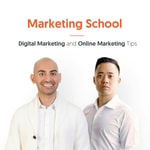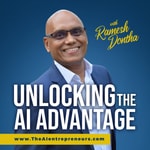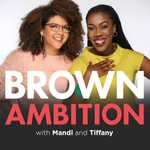Y Combinator Startup Podcast – Details, episodes & analysis
Podcast details
Technical and general information from the podcast's RSS feed.

Y Combinator Startup Podcast
Y Combinator
Frequency: 1 episode/11d. Total Eps: 262

Recent rankings
Latest chart positions across Apple Podcasts and Spotify rankings.
Apple Podcasts
🇨🇦 Canada - technology
28/07/2025#28🇬🇧 Great Britain - technology
28/07/2025#17🇩🇪 Germany - technology
28/07/2025#52🇺🇸 USA - technology
28/07/2025#41🇫🇷 France - technology
28/07/2025#46🇨🇦 Canada - technology
27/07/2025#44🇬🇧 Great Britain - technology
27/07/2025#31🇩🇪 Germany - technology
27/07/2025#54🇺🇸 USA - technology
27/07/2025#42🇫🇷 France - technology
27/07/2025#58
Spotify
🇩🇪 Germany - technology
28/07/2025#31→🇬🇧 Great Britain - technology
28/07/2025#18→🇺🇸 USA - technology
28/07/2025#22→🇩🇪 Germany - technology
27/07/2025#31↘🇺🇸 USA - technology
27/07/2025#22→🇬🇧 Great Britain - technology
27/07/2025#18→🇬🇧 Great Britain - technology
26/07/2025#18↘🇩🇪 Germany - technology
26/07/2025#28↗🇺🇸 USA - technology
26/07/2025#22→🇬🇧 Great Britain - technology
25/07/2025#17↘
Shared links between episodes and podcasts
Links found in episode descriptions and other podcasts that share them.
See all- https://www.hubspot.com/
622 shares
- https://zapier.com/
560 shares
- https://mastersofscale.com
338 shares
- https://twitter.com/elonmusk
98 shares
- https://twitter.com/craigcannon
62 shares
- https://twitter.com/sama
45 shares
RSS feed quality and score
Technical evaluation of the podcast's RSS feed quality and structure.
See allScore global : 22%
Publication history
Monthly episode publishing history over the past years.
Why Design Matters: Lessons from Stripe, Lyft and Airbnb | Design Review
samedi 16 novembre 2024 • Duration 33:37
Stripe, Airbnb and Lyft are a few of the most successful companies of the past decade. And there are at least two things they all have in common - great design, and Katie Dill. Katie was Head of Experience Design at Airbnb, led the design team at Lyft and is now Head of Design at Stripe. We spoke with Katie about her design philosophy, what sets companies like Stripe apart, and how important it is to instill a culture of design in your startup from day one.
How To Find A Co-Founder with Harj Taggar | Startup School
samedi 16 novembre 2024 • Duration 20:37
Building a startup and trying to break into an established market is very difficult, especially if you’re trying to do it alone! That’s why it’s critical to find the right co-founder for the journey. In this episode of Startup School, YC Group Partner Harj Taggar explains why you need a co-founder, when to bring them on, where you can find one and how to maintain the relationship.
How to Survive the Crypto Boom & Bust Cycle | Main Function
samedi 16 novembre 2024 • Duration 09:34
Over the past decade crypto has been declared dead hundreds of times. But with the price of Bitcoin surging over the past few months it’s clear that there are still enormous opportunities in this space. And few people know that better than Chandan Lodha, the co-founder of CoinTracker (W18), a crypto asset management and tax filing platform. He and his team have navigated several boom and bust cycles over the years and in this latest episode of The Main Function, you’ll hear about how they built their company, the time it nearly fell apart, and how they used a crypto winter to retool and emerge stronger than ever.
#127 - Vidit Aatrey and Adora Cheung
mercredi 22 mai 2019 • Duration 50:27
Vidit Aatrey is cofounder and CEO of Meesho. Meesho is a platform in India that allows people to resell products using their social networks. They were in the Summer 2016 batch of YC and you can check them out at Meesho.com.
Adora Cheung is a Partner at YC. Before working at YC she cofounded Homejoy.
You can find Vidit on Twitter @viditaatrey and Adora is @nolimits.
Y Combinator invests a small amount of money ($150k) in a large number of startups (recently 200), twice a year.
Learn more about YC and apply for funding here: https://www.ycombinator.com/apply/
***
Topics
00:00 - Intro
01:20 - What is Meesho?
3:20 - Why not just sell directly to consumers?
5:05 - What are the macro trends in Meesho's favor in India?
7:30 - A trust deficit market
8:55 - How does Meesho help users get online and start selling?
11:45 - Most impactful user stories
13:50 - Growth drivers
15:50 - Balancing growth and quality
17:25 - What if Facebook copies Meesho?
18:50 - When did Vidit and his cofounder know they wanted to start a startup?
21:20 - Their first startup idea and the inspiration for Meesho
25:40 - When did they know Meesho was working?
27:20 - How hard was it to pivot the business and how did they manage it?
30:05 - As a CEO how does he stay in touch with users?
34:50 - How has Vidit's role changed over time?
36:55 - How has he learned to be a CEO?
38:30 - What mistakes have they made?
39:35 - What was his best decision?
40:15 - What's a strong opinion he had about running a startup that he's changed since running Meesho?
41:45 - How has the Indian startup ecosystem evolved?
43:20 - Big problems worth solving in India
43:05 - Can foreigners come to India and start a startup?
45:10 - Best advice for aspiring Indian founders
46:20 - After Meesho, what's the most exciting startup in India?
47:20 - Why is Delhi the best IIT?
48:15 - What's a must read book and why?
49:10 - What's a startup idea he'd be working on if Meesho didn't happen?
49:25 - In 100 years, what does he hope Meesho is?
#126 - Chris Best and Jonathan Gill
mercredi 15 mai 2019 • Duration 49:29
Chris Best is the cofounder and CEO of Substack. Substack makes it simple for a writer to start a paid newsletter. They were in the Winter 2018 batch of YC. You can check them out at Substack.com.
Jonathan Gill is the cofounder and CEO of Backtracks. Backtracks is a podcast analytics and hosting platform. You can check them out at Backtracks.fm.
Chris is on Twitter @cjgbest and Jonathan is @jgill333.
The YC podcast is hosted by Craig Cannon.
Y Combinator invests a small amount of money ($150k) in a large number of startups (recently 200), twice a year.
Learn more about YC and apply for funding here: https://www.ycombinator.com/apply/
***
Topics
00:00 - Intro
1:03 - Paid vs advertising in podcasting
3:33 - Are advertisers overpaying for podcast ads?
6:13 - What percent of the market will ultimately be paid content?
8:13 - Payment mechanisms
9:48 - Price anchoring
12:28 - Individual creators vs brands
17:23 - Deplatforming
18:53 - Spotify
20:23 - Discovery and growth in newsletters
22:53 - Public and private feeds
25:23 - Apple's role
26:38 - Will education be the driver of paid content?
30:23 - Educational podcasters in China
32:23 - How are their newsletter and podcast customers growing?
36:18 - Jack Ryder asks - In 5 years time, are personal newsletters going to replace social networks like Facebook?
38:13 - Debdut Mukherjee asks - Do podcasts actually work? If so, how do startups calculate the ROI & the CAC?
43:38 - Measurement
45:23 - Best practices for new podcasters and newsletter creators
#125 - Brian Halligan and Kevin Hale
mercredi 8 mai 2019 • Duration 46:31
Brian Halligan is the CEO and cofounder of HubSpot. HubSpot builds software for marketing, sales, and customer service. You can try it out at HubSpot.com.
Kevin Hale is a Partner at YC and cofounder of Wufoo.
Brian is on Twitter @bhalligan and Kevin is @ilikevests.
The YC podcast is hosted by Craig Cannon.
Y Combinator invests a small amount of money ($150k) in a large number of startups (recently 200), twice a year.
Learn more about YC and apply for funding here: https://www.ycombinator.com/apply/
***
Topics
00:00 - Intro
00:27 - Brian's an introvert that likes to work from home. He also runs a public company. How does he do both?
2:12 - How does he manage his calendar as an introvert?
4:12 - How Brian met his cofounder Dharmesh
6:12 - The first project they worked on together
7:27 - What was their unique insight when starting HubSpot?
8:52 - Pricing in the early days
9:27 - How would he have priced HubSpot differently knowing what he knows now?
10:27 - HubSpot's first customer
12:27 - Important early features
14:47 - At what point did they shift entirely away from consulting?
15:32 - Providing advice as content vs in the product
16:27 - SEO is underrated
17:12 - Trends in B2B and marketing
21:57 - Inbound marketing and audience building advice
26:52 - How did Brian know that his cofounder was right for him?
28:12 - The internet disproportionately benefiting small businesses over big ones
29:12 - Keeping your company hungry when you're big
29:52 - Building assets for your company
30:47 - Freemium
34:27 - Structural pieces of HubSpot Brian would have changed if he did it again
37:27 - Creating the voice of your company
39:57 - Early metrics they tracked
40:32 - Having a coach and reviews
41:57 - How Brian's changed as a CEO from the beginning
42:51 - What was the hardest thing to give up as CEO?
43:57 - Humility
#124 - Jarvis Johnson
mercredi 1 mai 2019 • Duration 01:04:35
Jarvis Johnson was previously a software engineer at Patreon, Yelp, and Google. He’s now a YouTuber.
You can find him on YouTube at Jarvis Johnson and on Twitter @jarvis.
The YC podcast is hosted by Craig Cannon.
Y Combinator invests a small amount of money ($150k) in a large number of startups (recently 200), twice a year.
Learn more about YC and apply for funding here: https://www.ycombinator.com/apply/
***
Topics
00:00 - Intro
00:20 - Jarvis' intro
00:50 - Where his videos first got traction
1:30 - Being part of the software industry while critiquing it
4:05 - How he got into programming
6:30 - Moving to California
7:50 - Interning at Google then Yelp
9:20 - Interviewing multiple times at the same company
10:20 - Moving from Yelp to Patreon
14:30 - Switching from individual contributor to manager
18:35 - Learnings from managing that he applies to himself
21:45 - What made Jarvis want to do YouTube full time?
30:20 - Investing in yourself
31:25 - Making what you want vs talking to viewers
35:55 - When did things really start to click for his channel?
38:20 - Choosing to make multiple genres of video
44:00 - Nathan Allebach asks - Are content creators responsible in any capacity for their audiences?
51:05 - Taylor asks - In what ways do you think content creation can benefit one's career in the tech industry?
54:40 - Jarvis made a podcast when he was a teenager
56:30 - Octopus Blues asks - What lessons did improv teach you/who would you recommend it to, if anyone?
58:45 - Predictions for YouTubers and content creators
#123 - Harry Zhang and Kevin Hale
mercredi 24 avril 2019 • Duration 41:03
Harry Zhang is the cofounder of Lob. Lob makes it possible for enterprises to programmatically send physical mail. They were in the Summer 2013 batch of YC.
Kevin Hale is a Partner at YC.
Harry is on Twitter @harryzhang and Kevin is @ilikevests.
The YC podcast is hosted by Craig Cannon.
***
Topics
00:00 - Intro
00:31 - Harry's intro
00:41 - What did Lob have when they applied to YC?
2:01 - Documentation as an API company
3:16 - Where did the insight to create Lob come from?
4:26 - Lob's first version and first customer
7:26 - Closing their first big customer then signing others
12:31 - Did Harry always know Lob would be an API company?
14:01 - How long did it take to work up to enterprise customers?
15:31 - Pricing
19:46 - Creating a product roadmap
21:26 - Tradeoffs when building product
22:21 - Competing for top engineers as an API company
24:31 - Options vs RSUs
28:01 - Sales mistakes
32:21 - Building out features for enterprise clients
34:16 - Why did Lob choose to not vertically integrate?
39:31 - How has Harry had to change as a founder over the life of Lob?
#122 - Max Rhodes and Anu Hariharan
mercredi 17 avril 2019 • Duration 48:25
Max Rhodes is the cofounder and CEO of Faire. Faire helps retailers find and buy unique wholesale merchandise for their stores. They were in the Winter 2017 batch of YC.
Anu Hariharan is a Partner at YC.
Max is on Twitter @MaxRhodesOK and Anu is @AnuHariharan.
***
Topics
00:00 - Intro
00:32 - Max's intro
01:06 - Leaving Square and coming up with the idea for Faire
7:37 - Changes to SMBs in the past five years
9:37 - What is Faire?
11:57 - Max’s vision for Faire
15:12 - Finding product/market fit
18:12 - Switching to try before you buy
21:22 - What separates the great companies
22:32 - Scaling as a CEO
26:32 - Calming down
29:42 - Faire's first hires
33:42 - Faire's first executive hire
38:27 - Fundraising and fundraising advice
43:32 - Ryan McCarthy asks - Why did Max study history at Yale?
44:32 - Why does Max think Square Cash became a successful app?
#120 - Austen Allred
mercredi 3 avril 2019 • Duration 01:00:39
Austen Allred is the CEO and cofounder of Lambda School.
Lambda School provides a CS education that's free until you get a job. They were in the Summer 2017 batch of YC.
You can learn more about Lambda School at lambdaschool.com.
Austen is on Twitter at @austen.
The YC podcast is hosted by Craig Cannon.
***
Topics
00:00 - Intro
1:01 - Encouraging people to do something that they're scared to do
5:16 - Where did the insight for Lambda School come from?
6:26 - College vs developer schools
10:26 - Building a network
12:16 - Does Austen see value in a traditional liberal arts education?
14:56 - Steven Klaiber-Noble asks - As competitors begin to copy your model what front do you believe you'll be competing on?
17:56 - Why did Austen choose to raise money?
20:06 - Fundraising falling through on Austen's first startup
21:36 - Moving back to Utah and writing a book about growth
23:26 - Why Austen wrote a book
26:26 - "Starting a company is by definition saying, I think what I can do is worth more than what other people will pay me for."
27:26 - Mispriced human capital
30:21 - Other opportunities for Lambda School
32:46 - Modeling risk
35:36 - David Kofoed Wind asks - When Lambda School is incentivized to take in people that will land high paying jobs, how do you think about the diversity of candidates? One would imagine that it quickly becomes a game of pattern matching the stereotypical SV people.
37:51 - Will Lambda School ever not be remote?
41:16 - Dave Dawson asks - You appear to be on the successful path now, was there a point early in Lambda School when you wanted to stop?
43:46 - Helping everyone become an autodidact
46:46 - Rethinking where to start on an online course
48:11 - Dave Dawson asks - What keeps you up at night at this point?
49:46 - Dayo Koleowo asks - “I have made remarks I do not agree with” - from Austen's Twitter bio. What is that one remark you wish you didn’t have to disagree with?
53:26 - Choosing remote work as a core problem to solve in your company
55:56 - Analysts aren't good at measuring product quality
57:36 - Teaching taste


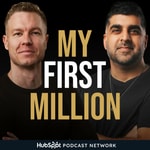
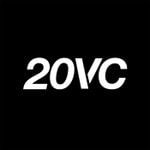
![VideoBourse [Bourse et Trading] VideoBourse [Bourse et Trading]](https://images.mypodcastdata.com/show-images/logo_videobourse-bourse-et-trading-videobourse-1nf2.jpg)
